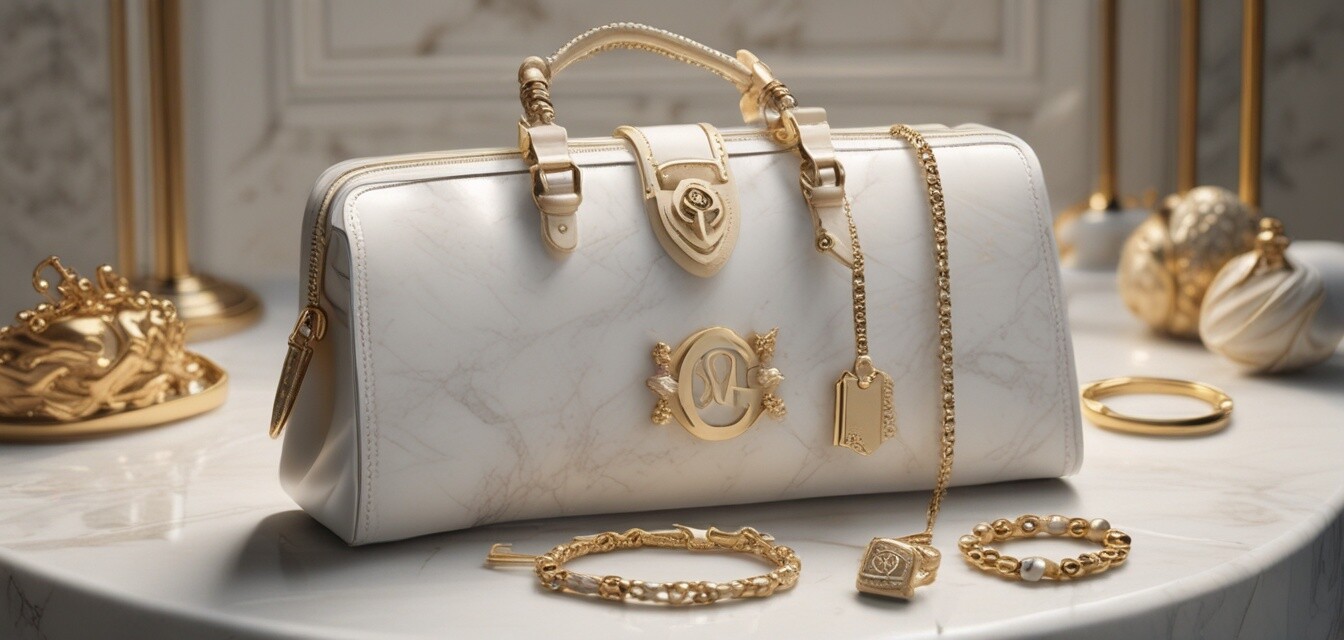
The rise of personalized luxury products
Key Takeaways
- Personalization is reshaping the luxury market across multiple sectors.
- Consumers are willing to spend more for bespoke offerings.
- Technology plays a critical role in enabling personalized experiences.
- Brands that offer personalization can create stronger customer loyalty.
In recent years, the luxury market has witnessed a significant evolution with the rise of personalized luxury products. Consumers are no longer satisfied with generic offerings; they crave uniqueness and customization that reflects their individuality. This article delves into how personalization is shaping luxury product offerings and why it matters across various sectors.
Understanding personalization in luxury
Personalization in luxury means creating products or experiences that are tailored to the individual preferences and desires of consumers. This trend is not merely a passing phase; it represents a fundamental shift in consumer behavior. High-end brands are now utilizing various techniques to provide bespoke solutions that resonate with customers.
Why personalization matters
- **Enhanced customer experience:** Offering personalized options leads to a more engaging experience.
- **Increased customer loyalty:** Consumers are likely to return to brands that cater to their specific needs.
- **Higher perceived value:** Personalized products often come with a premium, boosting the brand's value proposition.
- **Competitive advantage:** Brands that effectively implement personalization can distinguish themselves in a crowded market.
Key sectors embracing personalized luxury
Personalization is reshaping various industries within the luxury market. Below are some prominent sectors where this trend is evident:
| Sector | Personalization Strategies | Examples |
|---|---|---|
| Fashion & Accessories | Custom designs, monogramming | Tailored suits, personalized handbags |
| Electronics | Custom engraving, bespoke configurations | Luxury smartphones, personalized headphones |
| Beauty Products | Custom formulations, personalized packaging | Bespoke skincare, personalized fragrances |
| Jewelry | Custom designs, engraving | Personalized rings, necklaces with initials |
| Home Decor | Custom furnishings, tailored designs | Luxury furniture, bespoke art pieces |
The role of technology in personalization
Technology is the backbone of personalization in luxury products. Tools such as data analytics, artificial intelligence, and customer relationship management (CRM) systems enable brands to better understand consumer preferences and tailor offerings accordingly. AI-driven recommendations make it possible for consumers to discover products that align with their tastes, enhancing their shopping experience.
Emerging technologies influencing personalization
- **Artificial Intelligence:** Helps brands predict consumer needs and personalize marketing.
- **Augmented Reality:** Allows consumers to visualize personalized products (e.g., trying on jewelry virtually).
- **Big Data:** Provides insights from consumer behavior patterns to drive bespoke offerings.
- **E-commerce Platforms:** Deliver customized user experiences through recommendation algorithms.
Challenges in implementing personalization
While personalization presents numerous opportunities, it also poses challenges that luxury brands must navigate. These include:
- **Data Privacy Concerns:** Customers may be hesitant to share personal information.
- **Maintaining Exclusivity:** Balancing personalization with the perception of luxury and exclusivity can be tricky.
- **Resource Allocation:** Investing in technology and talent for personalized products can be costly.
The future of personalized luxury products
The demand for personalized luxury products is expected to grow rapidly, driven by changing consumer behaviors and advancements in technology. Brands that leverage this trend effectively will not only attract new customers but also foster long-term relationships with existing ones.
Anticipated trends in personalized luxury
- **Sustainability:** Personalized luxury products focusing on eco-friendly materials will rise.
- **Collaboration with Artists:** More brands will collaborate with artists for unique, personalized pieces.
- **Virtual Experiences:** Enhanced virtual shopping experiences will become common for customization.
Pros
- Creates strong emotional connections with consumers.
- Enhances product engagement and satisfaction.
- Improves brand loyalty and retention rates.
Cons
- Can alienate consumers who prefer standard options.
- Requires significant investment in technology.
- Risk of over-personalization leading to privacy issues.
In conclusion, the rise of personalized luxury products signifies a pivotal moment in the luxury market. It marries individuality with luxury, creating meaningful experiences that resonate with modern consumers. As the landscape continues to evolve, staying updated with the latest trends will be essential for both consumers and brands.
For more insights and updates on luxury trends, check out our posts on news and trends in luxury products and explore the latest in collectibles and fashion accessories.
Don’t miss out on discovering the most luxurious offerings available. Explore our electronics and home and kitchen sections to find exclusive items that embody personalized luxury.

